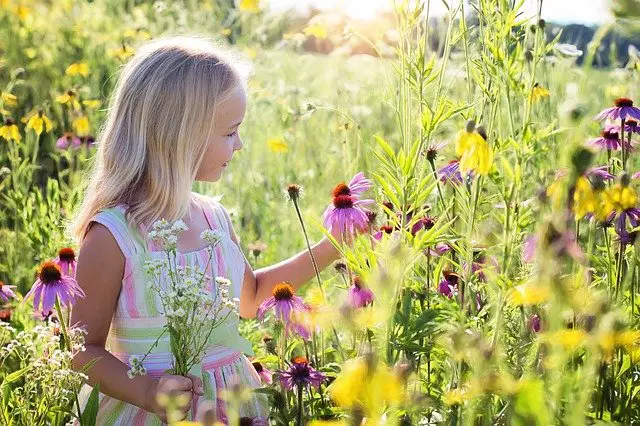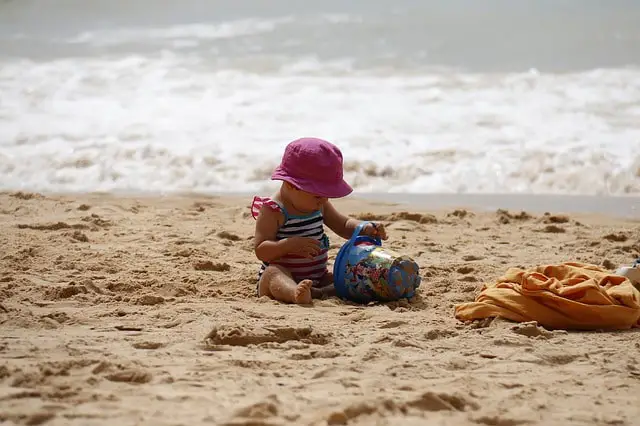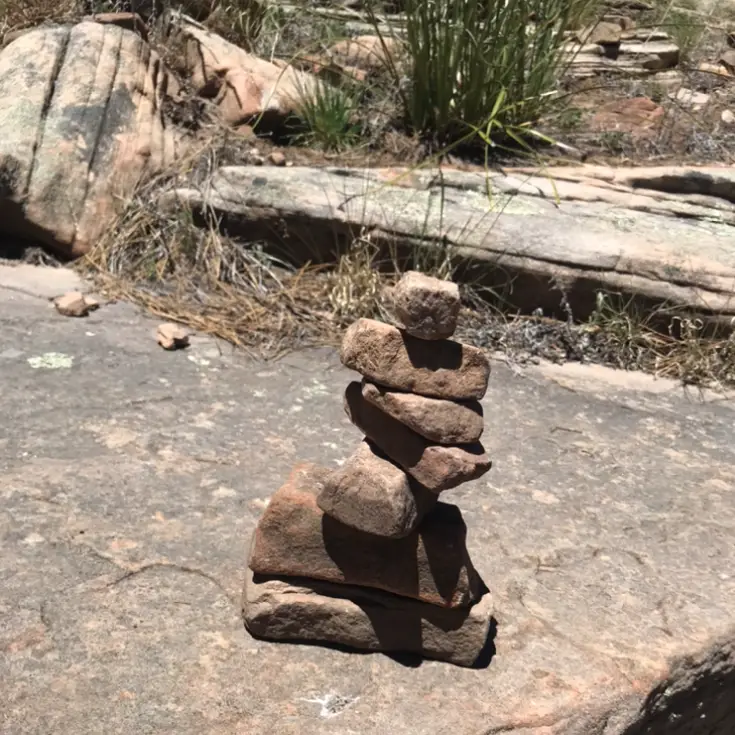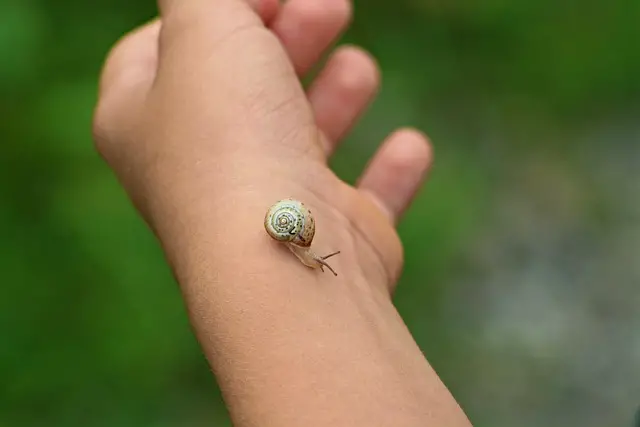Nature play, exploring outside, and engaging in outdoor adventures are activities that provide endless benefits for child development. Connecting with nature has an enormous positive impact on a child’s growth, as does disconnecting from technology. Excessive screen time and video games remove the opportunity for children to bond with the natural world around them. Going outside to chase butterflies, jump in puddles, and dig in the mud will grow happy, healthy, and curious children.
Let’s look into the compelling advantages of nature play and how it inspires blossoming child development.

Physical Development
Nature Play Promotes Large and Small Muscle Strength
Through play, children naturally develop gross motor and fine motor skills. Play also improves endurance, balance, coordination, strength, and agility. Children create games and challenge themselves. How fast can I run? How far can I throw a rock? How high can I climb the tree?
Running in the woods, jumping over natural obstacles, climbing a steep peak, lifting, and pulling logs -fun activities that create endless opportunities to enhance physical strength. Walking carefully on a fallen tree in the woods improves balance. Stepping over a spearing branch while staying safe and stable on one foot is a coordination and balance competence.
Similarly, playing and manipulating small nature items helps develop the small muscles of the hands as well as hand-eye coordination skills. Building and inventing nature designs with rocks, sand, seeds, sticks, leaves, and cones leads to hand skill development in a natural and enriched way.

Freedom
Nature Play Allows Children the Ability to Act without Constraint
Children feel powerful and independent when they are in a natural environment. They feel released from the confined space of the classroom. The natural world is free from rules, formal instruction, pressure, and expectations. Playing freely, children use their imaginations to interact with the natural environment. The nature play is unstructured, unbiased, and completely uninhibited. Kids are free to take healthy risks, explore the unknown, and learn about new exciting wonders.
Little ones value the uninterrupted experience with nature. In other words, they enjoy making mud puddles, throwing rocks in the lake, walking, and exploring the woods. Kids are content when playing in nature, free from formal expectations. Consequently, they become completely absorbed in their free play and do not want to end their interaction with the natural world.

Natural Sensory Experience
Nature Play Provides Ultimate Sensory Connection
Playing in nature engages all the senses. The natural environment is the ultimate place to stimulate learning and creative play. There is so much to touch, see, hear, taste, and smell.
Children explore by touching different textures like mud, sand, water, dirt, seeds, leaves, rocks, tree bark, grass, flowers, sticks, logs, and pinecones. Feeling raindrops, wind, and sun on your skin are sensory experiences that can only happen outside.
Kids get excited when they see animals or insects. They naturally appreciate seeing and chasing after flying butterflies, leaping frogs, running lizards, or swimming fish. Similarly, they observe moving clouds, see trees that are dancing to the wind, and capture beautiful natural colors all around, it creates a serene feeling.
Listening to the chirping birds, falling waterfall, whistling wind, and crashing waves nurture the sense of hearing. Tasting freshly picked berries, smelling flowers, and freshly grown herbs in your garden is a pure joy to a young child.
Altogether, outdoor sensory experiences nourish a child’s learning, play, appreciation, and love for nature.
Sensations have a powerful impact on a young child and provide meaning to the experiences, please click here if you would like to learn more.

– Scott D. Sampson
State of Zen
Nature Play Encourages Intuitive Child Engagement
Children are fascinated by nature. When children engage in playing in nature, they often enter a state of calm, happiness, and enjoyment. The coherence of the body and mind creates the ultimate inner peace. The focus of a child’s actions is guided by intuition rather than by conscious effort.
Above all, the child becomes lost in the beauty of their quest and creates unique thoughts and discoveries. Children feel free and confident to express their original ideas enriched by nature. Nature contributes to a happy and healthy development. The natural environment is soothing, relaxing, and healing.

– Vince Gowman
Cognitive Development
Nature Play Nurtures Thinking, Exploring and Figuring Things out
Nature inspires children to think, explore, and understand the world around them. As children observe, discover, and experiment with nature, they learn to problem-solve, communicate, and plan ideas. Children express thoughts and feelings as they generate new findings and connections.
Furthermore, they absorb the magnitudes of new concepts and new vocabulary by interacting with nature. They cultivate their sense of wonder, expand their interests, and creativity. Playing outside stimulates imagination and curiosity. The natural environment supports improved focus, attention, and concentration.

Social and Emotional Development
Nature Play Fosters Positive Relationships and Understanding of Feelings
Nature play with friends builds relationships, and fosters emotional well-being. Studies show that being in nature improves mood, reduces stress, and boosts health and confidence. When children interact with the natural environments, they learn how they feel, freely express themselves, cope with frustrations, and understand how to manage their emotions.
In addition, children spontaneously develop imaginative play skills and engage in creative teamwork. Unstructured time in nature supports social skills and cooperative interaction with friends. Children have endless opportunities to share ideas, negotiate, lead, and take turns. Young children learn about perspective-taking and conflict resolution. They also develop caring peer connections, as they experience the personalities and temperaments of others.

Natural World Value and Appreciation
Nature Play Inspires Beauty and Ethical Awareness
Teaching children about protecting and appreciating the beautiful world around us is crucial in early childhood. A positive environmental education will foster a lifelong sense of caring and gratitude for the conservation of natural beauty and living creatures. Children need abundant positive experiences with nature to develop a healthy relationship with the natural environment.
Most people spend at least 95% of their time indoors (Wilson, 2008). As a result, young children create unhealthy worries and fears and perceive nature unfavorably. Although there are elements of the natural world, we have reason to fear nature is not an absolute threat to our safety. It is normal to see a spider or a squirrel, an insect, or a deer. Children need opportunities to interact with nature in order to shape positive environmental beliefs, understanding, and an appreciation for nature. Raising ecologically sensitive children will result in happy and healthy childhood development.
Unfortunately, when children are deprived of positive experiences in the natural world, it can lead to upsetting results. Research confirms that deficits in outdoor-based play result in a significant increase in emotional and psychological disorders, decreased capacity to deal with stressors, and decreased physical fitness (FP Mainella, 2011). Therefore, the greatest gift you can give your child is a wealth of outdoor adventures.
Summary
In closing, children need frequent opportunities to spend time outside in the natural world. Free, enriched nature play fosters a sense of wonder, cognitive performance, physical health, and overall well-being. Connection to nature will contribute to a beautiful and healthy development. Just go outside and enjoy what our great earth has to offer!
If you enjoyed this article, please share it with a friend!
References
Mainella, F., Agate, J., and Clark, B. (2011). Outdoor-based play and reconnection to nature: A neglected pathway to positive youth development.
Wilson, R. (2008). Nature and Young Children. Encouraging Creative Play and Learning in Natural Environments.


Dear Adriana,
Tremendous article and so important! Thank you for expressing it in a Beautiful way.
You have a gift of being an amazing OT but now also a writer!! Thanks for sharing your wisdom and talent.
Thank you Crystal:)
It is very interesting, well written, and a pleasure to read. The article is not only for parents and grandparents but also for everyone who loves to spend quality time with kids. I highly recommend it!